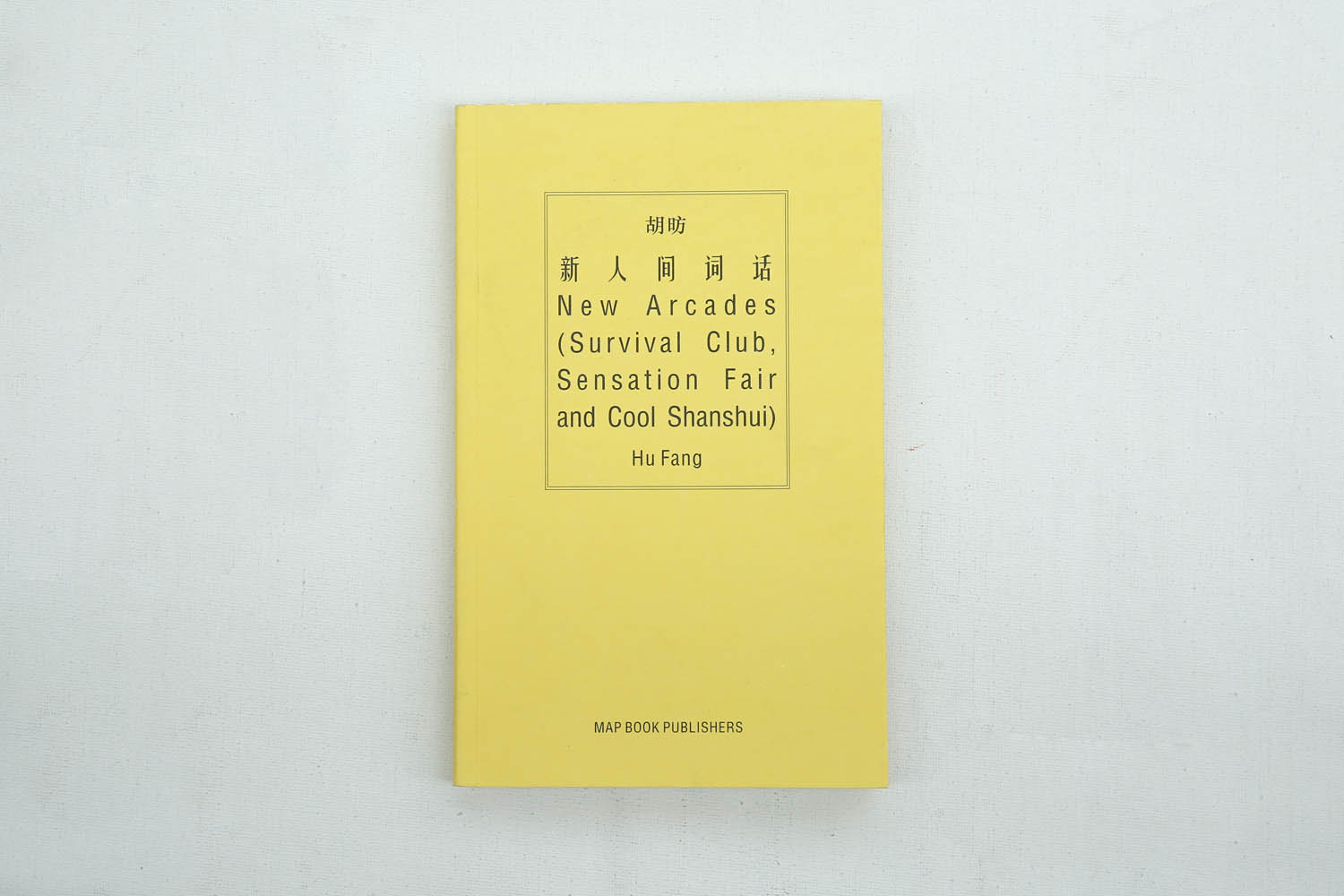
Today, these leisure centers and clubs are spread all over our cities, and are like a system for the propagation of the self. It is more appropriate to talk of meetings between the self and the embodiment of the self than meetings with other people in these worlds. People with similar life experiences and desires come together to share their existences, aiming to make a breakthrough, to reach a higher level. As they make their way home, they will return with the warm embrace of the self
– this is the prize that members can hope to achieve from their time in these spaces.
These enclosed, self-sufficient spaces create ideal, pollution free worlds that come together to make a semi-utopian system. People step into these worlds to strengthen their resistance against the cruelty of reality. Because of this, every such space provides its members with an ideal experience that differs from everyday life.
The young middle classes are especially drawn to this type of risk-free adventure, where they can develop individual will and the power of self-government. The emergence of members-only clubs based on the theme of ‘survival’ reflects the intense desire of people to model the self and strengthen their competitive edge. This acting out of survival situations involves camping, canoeing, diving and mounting climbing scenarios. Unlike the indoor golf course, this type of activity creates the illusion that nature is only a step away…
—Excerpts from New Arcades No.2 Survival Club
The rapid proliferation of arcade streets in China was a phenomenon that Benjamin had clearly foreseen but not witnessed with his own eyes. This book is an eastward extrapolation of The Arcades Project. Based on his personal experience, Hu Fang patiently pieces together fragments that describe the advancement and urbanization of China today. Although the passages and delineation of these new arcades are somewhat fuzzy, they continue to bedazzle with their mystique and melancholy.
— Zhang Xiang, Shanghai Art & literature Publishing House, ex Chief Editor of Art World
A restless authorial intelligence, moving like water through new arcades of pachinko parlours, zen gardens, the night zoo, and all the relentless surrogate forms of modern environment, floating on tradition, cash-strapped shanshui landscapes tout for day-labour in the new economy. The future, this writing insists, is not what it used to be: already ruinous, sold out and option-traded to our most toxic, our catastrophic, desires: the future has never mattered more.
— Andrew Brewerton, Poet, Principal of Plymouth College of Art
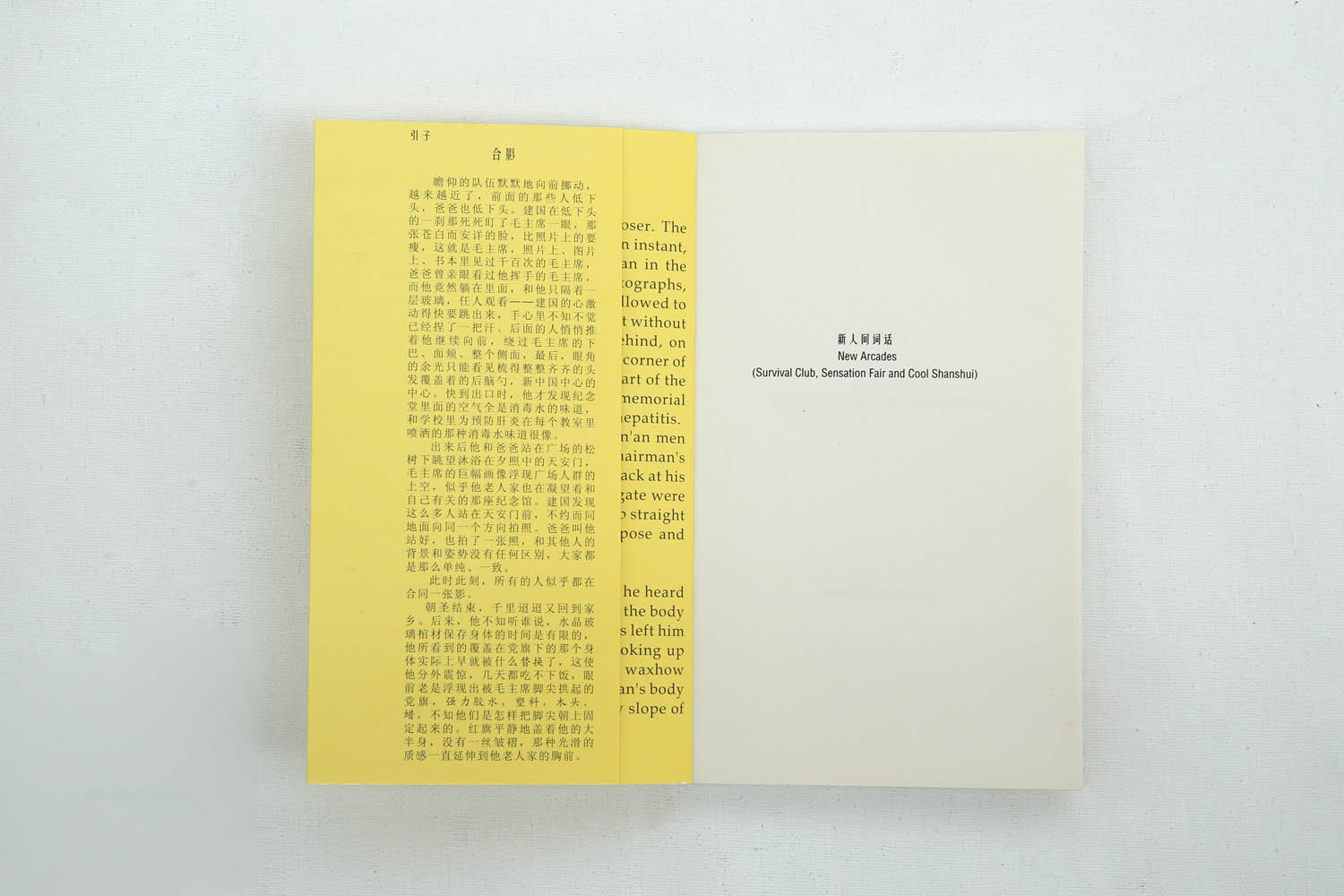

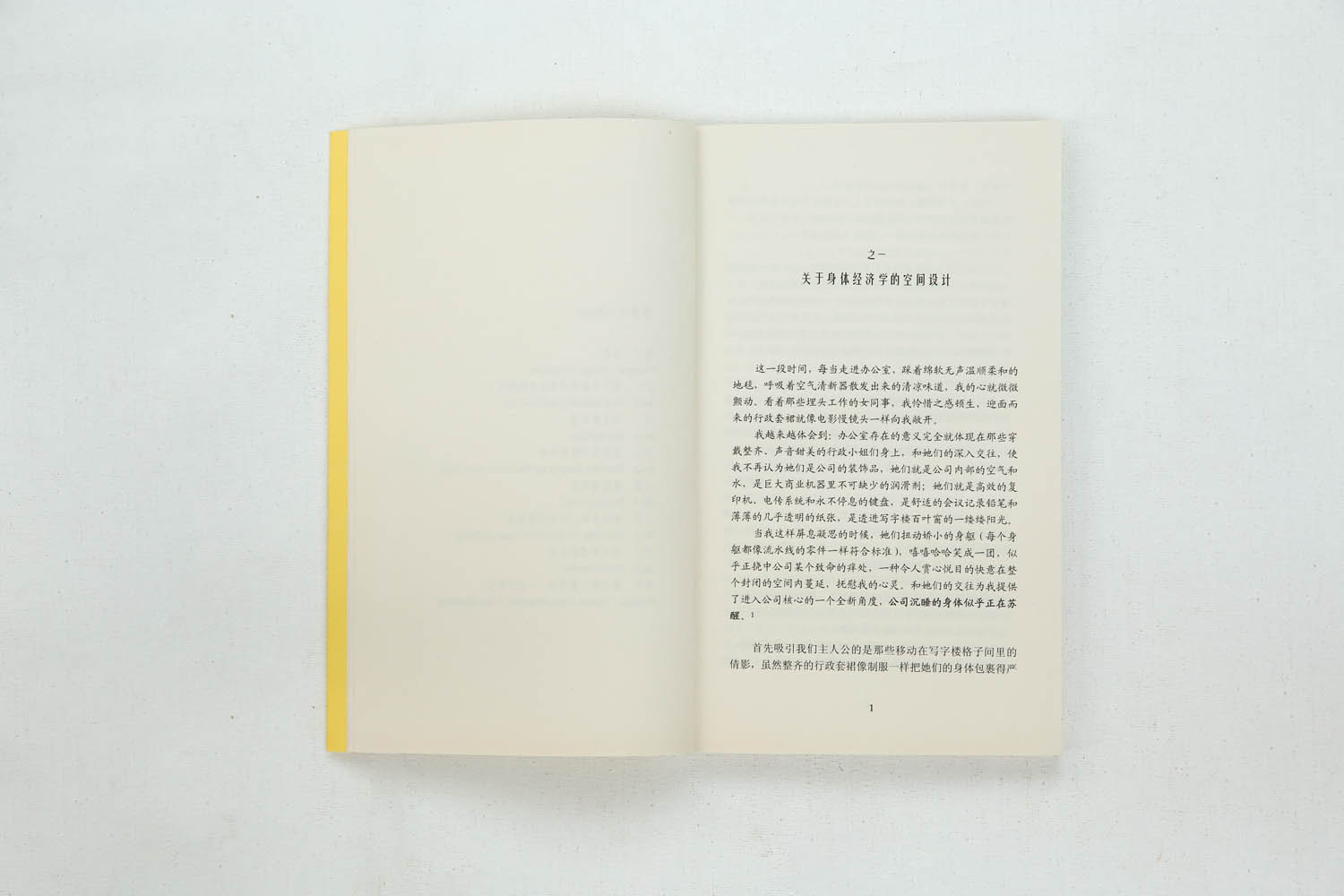
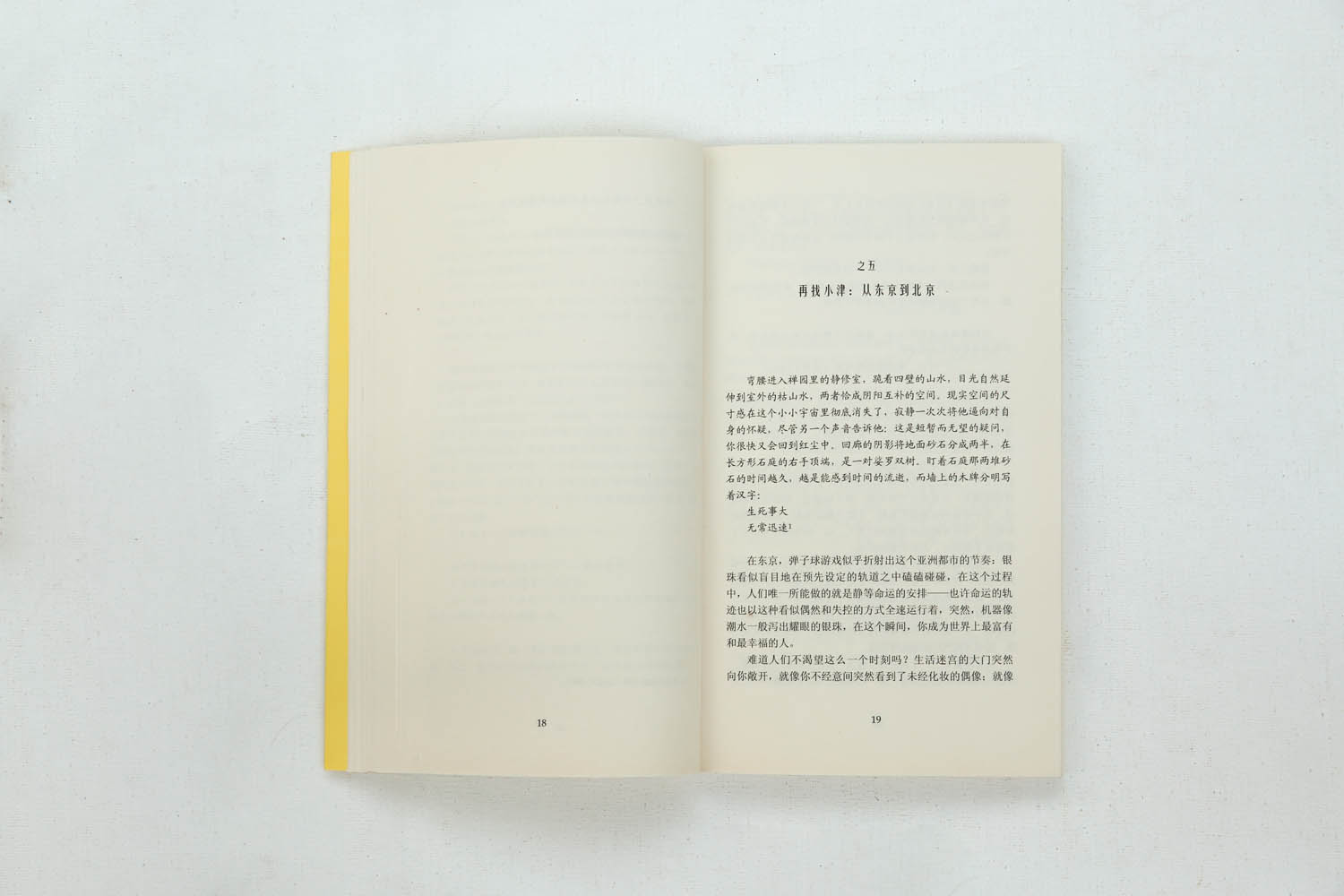
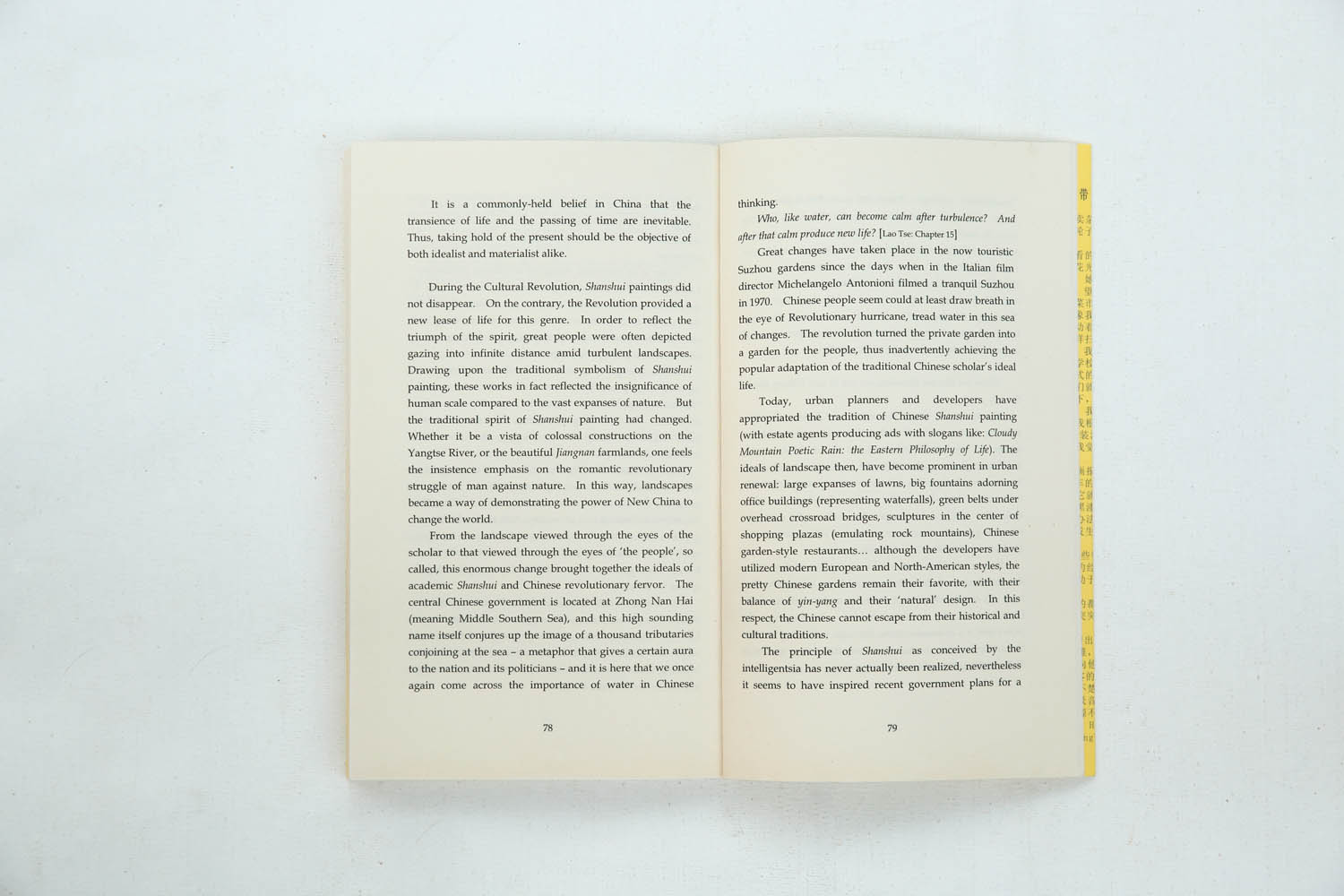
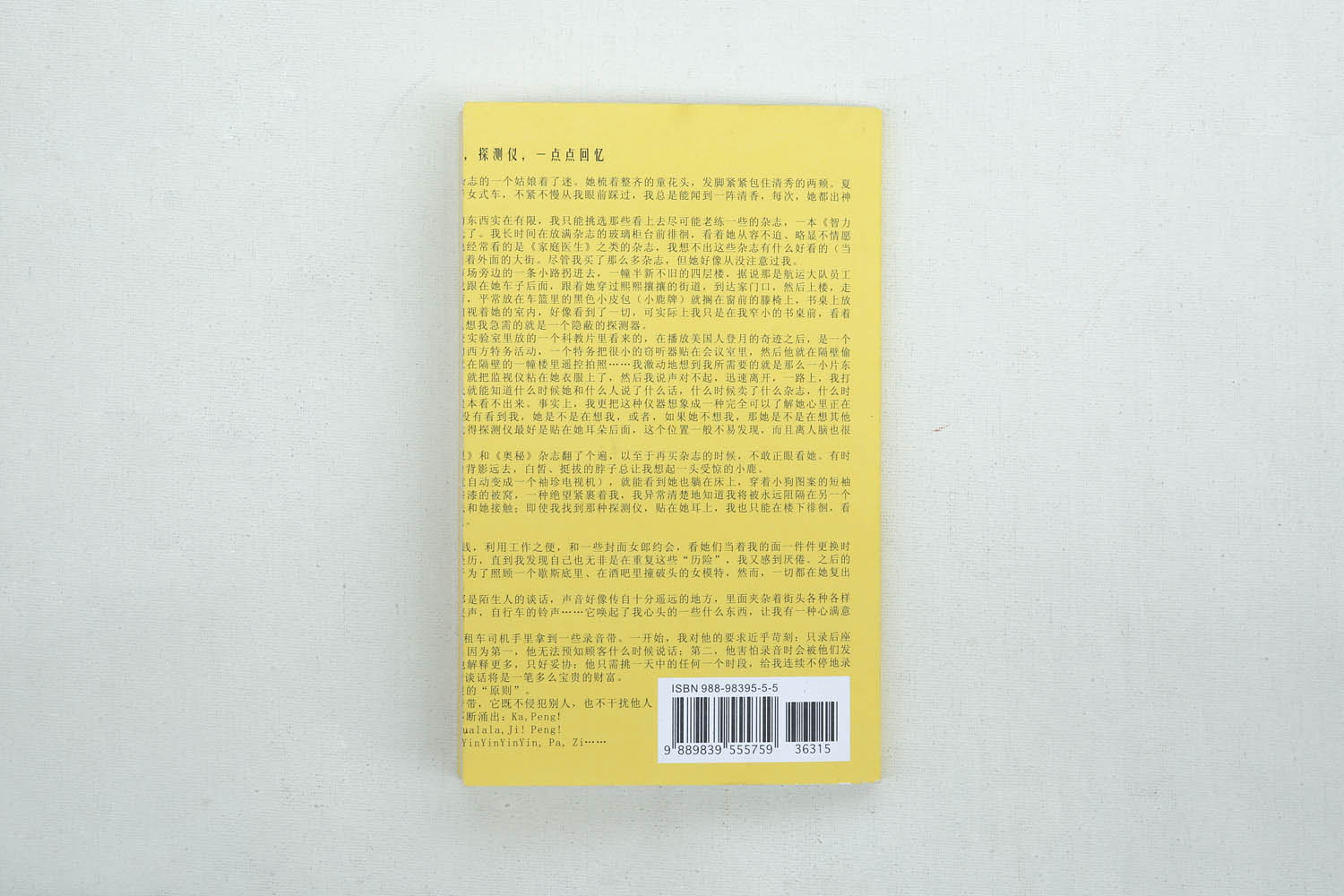
Language: English and Chinese
Size: 21×13 cm
Page: 81
Year: 2006
About Hu Fang
Hu Fang, a fiction writer, art critic, works and lives in Guangzhou, China. His recent books include: Dear Navigator (Fiction, Sternberg Press, English) and Towards a Non-intentional Space (Essay, Koenig Books, London, English).
Image and Text: The Pavilion, ©Authors, The Pavilion, 2006